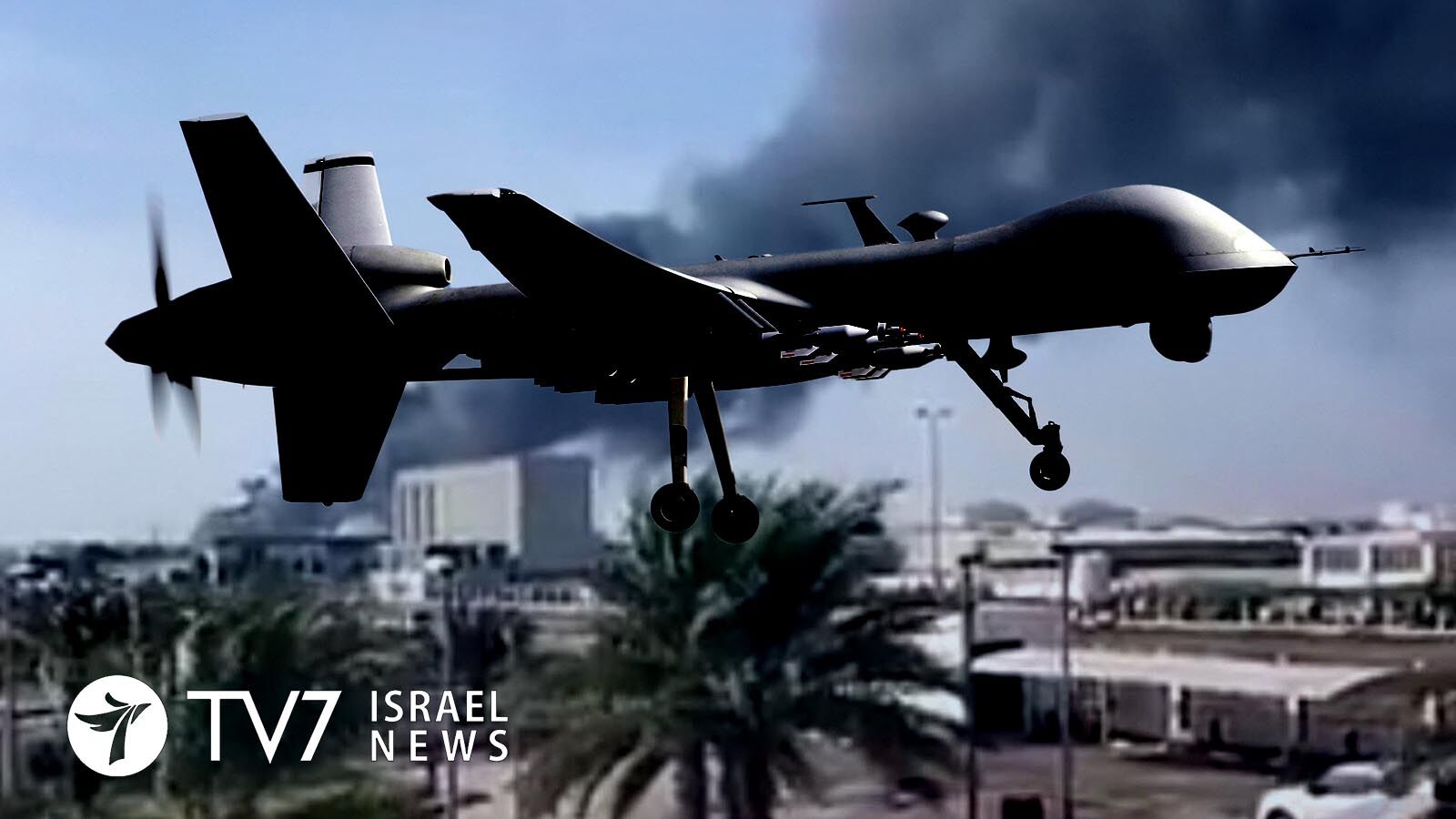Abu Dhabi is vowing to avenge by armed drone and missile strikes near its airport launched by Iran-backed Houthi insurgents in Yemen.
By Erin Viner
“The UAE condemns this terrorist attack by the Houthi militia on areas and civilian facilities on Emirati soil…(It) will not go unpunished,” said a statement released by its Foreign Ministry, stressing that, “The UAE reserves the right to respond to these terrorist attacks and criminal escalation.”
The Islamist Houthis have frequently launched cross-border missile and drone attacks on Saudi Arabia – but have claimed few such attacks on the United Arab Emirates (UAE).
Houthi military spokesman Yahya Sarea said the group fired 5 ballistic missiles and “a large number” of drones at Dubai and Abu Dhabi airports, an oil refinery in Musaffah and several “sensitive” sites in the UAE.
Abu Dhabi police said 3 people were killed and 6x wounded when 3 fuel tanker trucks exploded in the industrial Musaffah area near storage facilities of oil firm ADNOC. State media identified the fatalities as 2 nationals from India and 1 Pakistani.
ADNOC confirmed the casualties and said an incident at its Mussafah Fuel Depot at 10 AM resulted in a fire. The company added business continuity plans had been implemented to ensure the uninterrupted supply of products to local and international customers. Unverified footage posted on social media showed heavy smoke in the area.
An Etihad Airways spokesperson said a low number of flights were briefly disrupted at the airport due to what the airline called “precautionary measures,” but that normal operations were resumed swiftly.
Initial police investigations located debris of small aircraft that could possibly have been unmanned aerial vehicles (UAV, drones) in Musaffah and the Abu Dhabi airport, but no mention of missiles was forthcoming.
Abu Dhabi is the region’s commercial and tourism hub.
Analysts say the attack on a leading Gulf Arab ally of the United States takes the war between the Houthis and a Saudi-led coalition to a new level; and may also hinder efforts to contain regional tensions as Washington and Tehran work to salvage the 2015 Joint Comprehensive Plan of Action nuclear deal.
The UAE, a member of the coalition, has armed and trained local Yemeni forces that recently joined combat against the Houthis in Yemen’s energy-producing Shabwa and Ma’rib regions.
“With (nuclear) negotiators running out of time, the risk of a deterioration in the region’s security climate is rising,” Reuters cited Torbjorn Soltvedt, principal MENA analyst at risk intelligence company Verisk Maplecroft, as observing.
The Riyadh-led alliance responded to the UAE attack by conducting air strikes on Yemen’s Houthi-held capital Sanaa, Reuters witnesses said, adding that the coalition also intercepted 8 drones launched toward Saudi Arabia yesterday. One of the air strikes hit the home of a former military official, killing him and his 25-year-old son, a medical source and two neighbors told the London-based news agency.
The Yemen war is widely seen as a proxy conflict between arch-foes Sunni Muslim Saudi Arabia and Shi’ite Iran. In recent months, Riyadh and Abu Dhabi had made efforts to engage directly with Tehran to minimize eruption of a wider conflict that could damage regional economic ambitions.
The attack coincided with a visit to the UAE by South Korean President Moon Jae-in. A Blue House official said a summit between Moon and Abu Dhabi Crown Prince Sheikh Mohamed bin Zayed bin Sultan Al Nahyan had been cancelled.
In a statement obtained by TV7, Israeli Prime Minister Naftali Bennett today condemned the latest developments.
“I strongly condemn the terrorist attacks in Abu Dhabi carried out by the Iranian-backed Houthis and send condolences to the families of the innocent victims. Israel stands with the UAE. I stand with Mohammed bin Zayed,” said Prime Minister Bennett.
“The world should stand against terror,” added Bennett, who met with the Crown Prince last month in a first-ever landmark visit to the UAE.
Israeli Foreign Affairs Minister Yair Lapid also condemned the strike, while conveying condolences to the families of those killed and best wishes for a speedy recovery to those wounded.
“Israel stands with the United Arab Emirates,” said Jerusalem’s top diplomat, underscoring a “call on the international community to strongly condemn such attacks and to act immediately so that Iran and its proxies will not have the tools to continue to undermine regional security and harm innocent people.”
State Department Spokesperson Ned Price released a statement, saying that, “The United States strongly condemns the terrorist attacks in Abu Dhabi today, which struck civilian sites including Abu Dhabi’s international airport, killing and wounding innocent civilians. We express our condolences to the families of these victims and to the people of the UAE. The Houthis have claimed responsibility for this attack. We reiterate our unwavering commitment to the security of the UAE and stand united with our Emirati partners.”
White House National Security Adviser Jake Sullivan said Washington would work to hold the Houthis accountable, and US Secretary of State Antony Blinken condemned the attack during a phone call with his Emirati counterpart, reported the UAE state news agency.
United Nations Secretary General António Guterres joined others by denouncing the Houthi strike on the UAE, while urging “all parties to exercise maximum restraint and prevent any escalation,” said his spokesperson.
French Foreign Minister Jean-Yves Le Drian said the attack threatened regional stability.
There was no immediate comment from Iranian officials, but Iran’s Tasnim news agency referred to the incident as an “important operation.”
